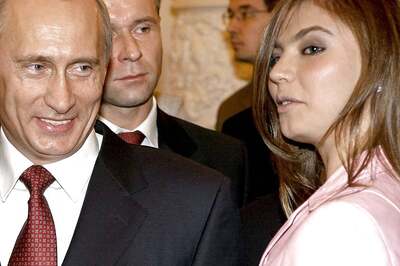
views
Madrid (Spain): Traditionally Spanish footballers have been a home-loving bunch, preferring the familiar surroundings of the Primera Liga to the unexplored territory of big-name foreign leagues.
The difficulty of breaking strong family ties, differences in food, language, climate and life-style were all used as explanations for the players' reluctance to try their luck overseas in the past.
In recent years that stay-at-home image has come under threat as increasing numbers of Spanish players have taken the plunge and decided to ply their trade abroad.
The present Spanish squad, at least until Asier del Horno was ruled out with an injury, contained six players who live in England.
And many believe that their inclusion adds a new dimension to a side that has won an unwelcome reputation for choking on the big occasions.
Players like Xabi Alonso, Luis Garcia, Pepe Reina and Cesc Fabregas have thrived in the Premier League and are likely to bring a harder edge to a national team that is often accused of being high on skill and technique but short on grit and determination.
"We will have more options in this World Cup," Liverpool keeper Reina said.
"The fact that in England football is played at a faster pace and the game is more physical means that we are better prepared to face teams who use that style.”
"The hardest thing about moving to England is adjusting to the life-style, but in terms of football it isn't so bad. It is the rhythm of life there, the weather and the food that affect you especially in the first year, but you can get used to that."
There was a time when only a handful of Spanish players chose to venture abroad, with those that did leave tending to favour destinations such as Italy or South America where social and cultural similarities made adaptation that much easier.
Instead Spain was renowned for its illustrious imports, with Argentine great Alfredo Di Stefano blazing the trail when he signed for Real Madrid in the mid-1950s.
From then on a string of top-class players graced La Liga with their presence, men such as Hungarian greats Ferenc Puskas and Ladislao Kubala, Dutch genius Johan Cruyff, Argentine legend Diego Maradona, Brazilian forward Romario and French midfielder Zinedine Zidane.
But in the last decade it has not just been the big names who have come to Spain, a constant stream of lesser-known players from abroad have also landed in the Primera Liga.
It is the scale of the influx of foreign that has forced many up and coming Spanish youngsters to look abroad to pursue their careers explains Reina.
PAGE_BREAK
"I think that one of the reasons why previous generations didn't travel was because there wasn't such a massive invasion of foreign players," he says.
"But now foreign clubs are showing more interest in Spanish players that the Spanish clubs, so players have had little choice but to emigrate and look to pursue their careers abroad."
Arsenal midfielder Fabregas is a prime example of a talented young player who realised that he would have a much greater chance of making it in England than in Spain.
Arsene Wenger gave him the opportunity to experience first-team football at the age of just 17, something he would never have enjoyed at his former club Barcelona, and he responded brilliantly.
The obsession that Spain's two biggest clubs Barcelona and Real Madrid have with signing foreign stars has also forced bigger-name players to look abroad.
Fernando Morientes opted for a move to Anfield after seeing his first-team appearances at Real restricted by the arrival of first Ronaldo and then Michael Owen.
The hefty transfer fees and big wages paid in England are another incentive for players to make the switch.
The greater coverage given to the Primera Liga by English television means that Spanish players are given more exposure, and the emergence of more European-minded managers such as Rafa Benitez, Wenger and Jose Mourinho has also reinforced the trend.
"Of course signing for Liverpool was much easier because of Benitez," says Reina.
"Being Spanish he wanted to sign players that he knew like us and he has also helped us settle in an adapt."
But now a growing number of Spanish players are managing to break the mould and fans are hoping that their experience will help give the national side that extra edge in Germany.
















Comments
0 comment